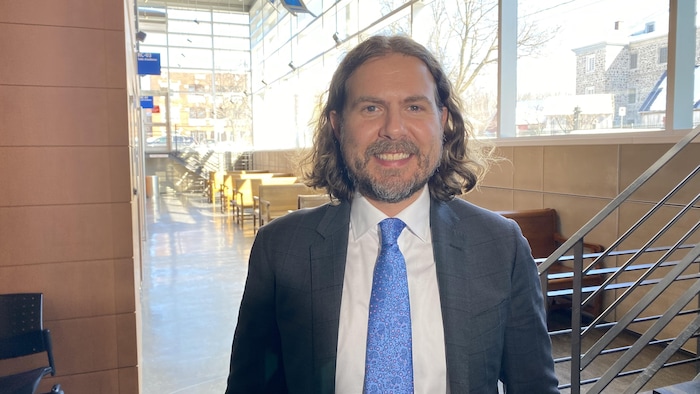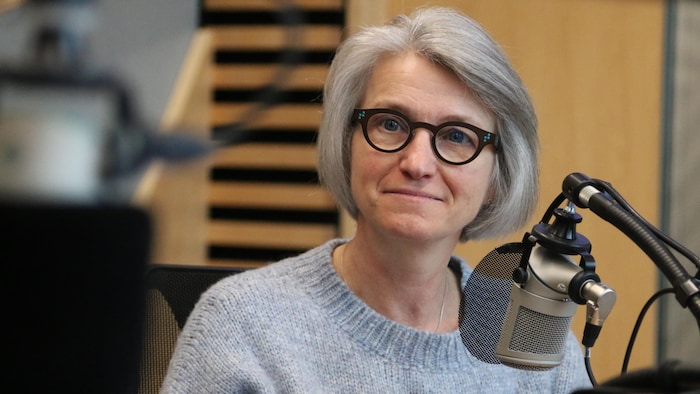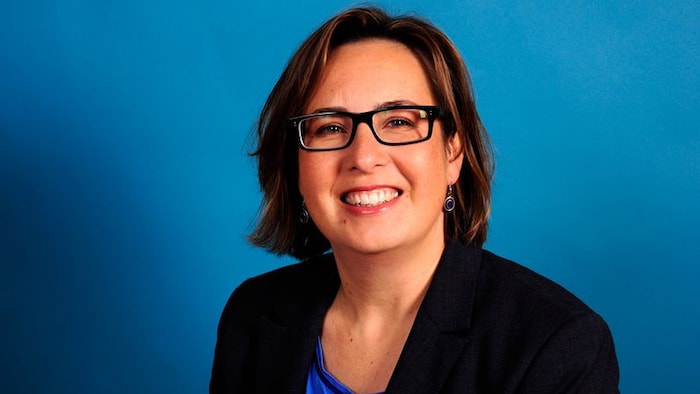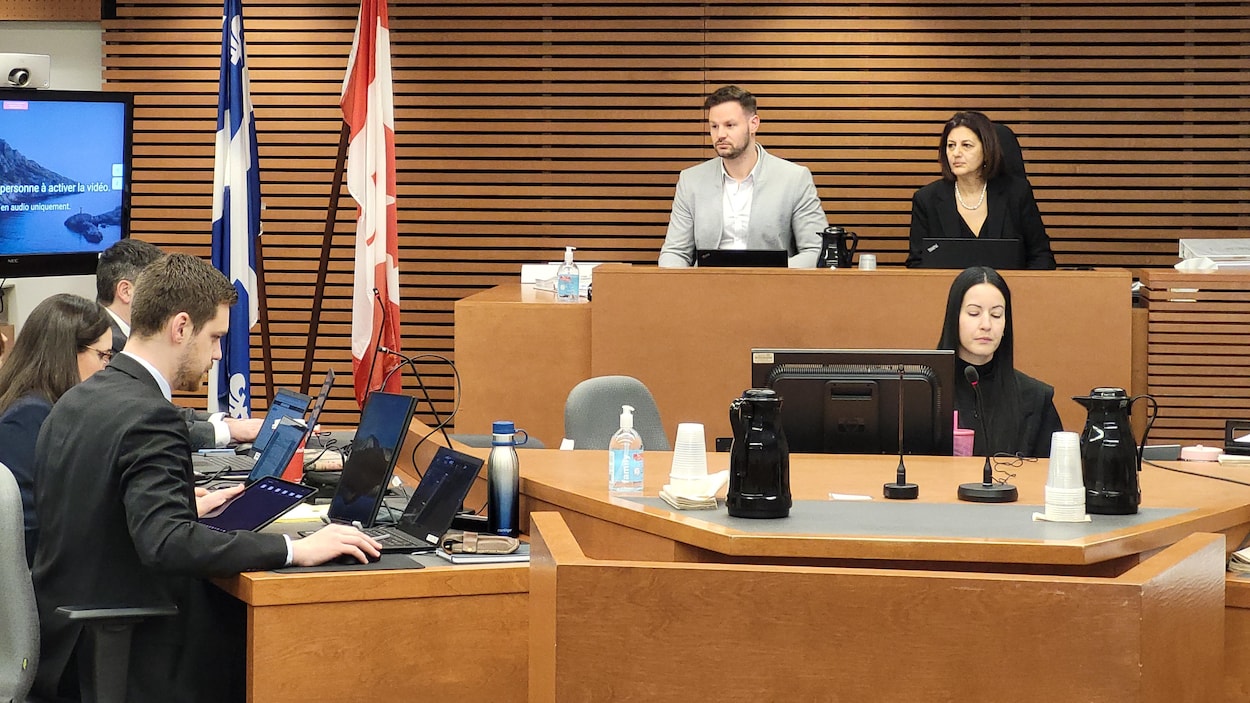The hike is high for an overhaul of the legal psychiatric system, according to experts, in a context where Quebec is the “champion,” they say, in terms of the number of individuals who have been found not responsible.
A trio of experts added their perspective to the coroner’s inquest into the death of Sergeant Maureen Breau, specifically comparing Quebec’s reality to Ontario’s system, which is considered avant-garde in the country.
Experts insisted on impunity convictions, which are twice as common in Quebec as in Ontario. Yet Ontario’s population is twice as large.
Year after year, each year in Quebec, it delivers between 450 and 500 new judgments on impunity, which elevates it to the rank of champion
illustrated by researcher Anne Crocker.
Go to court to get access to care
Forensic psychiatrist Mathieu Dufour, who has worked in both provinces, pointed out to the coroner that such convictions are handed down in Quebec for less serious crimes than in Ontario, such as shoplifting or threats.

Forensic psychiatrist Mathieu Dufour compared the systems in Quebec and Ontario.
Photo: Radio-Canada / Raphael Poliquin
The judiciary is considered a means of access to psychiatric care, according to the expert. A vision shared by Anne Crocker.
People who enter the forensic psychiatric system will receive good care. So that’s not the concern. What is worrying is that it forces us to prosecute more minor offences
who could be treated differently, adds the director of the Observatory for Justice and Mental Health.
To support her opinion, the expert emphasizes weight label
attached to people living with mental health problems.
Saying that you have undergone forensic psychiatry or that you have been found not criminally responsible may not be the first thing you tell a future employer.
she says.
So maybe for more minor crimes we could come up with ways other than going through (a plea), even if it might be true that the crime was related to the disease. Is the consequence of this statement worth it? I wonder
she specifies.
One of the most decentralized systems in the world
dr. Dufour also explained to the coroner that the two provinces have one maximum security psychiatric facility. In total, Ontario has 10 hospitals designated for forensic psychiatry, while Quebec lists 45, making it the most decentralized system in the country and the world, Ms. Crocker adds.
There is something that needs to be reviewed to ensure that we are putting the right people at the right time in the right places with the right resources and then not burdening workers from other environments who may be working with a different clientele.
she says.
dr. Dufour believes that a smaller number of hospitals would enable the establishment of specialized teams and the development of specific expertise transferred to each psychiatrist, even though the patient is sometimes more distant from his living environment. , he nuances.
Gathering psychiatrists has advantages, according to Claire Gamache, president of the Association of Psychiatrists of Quebec (AMPQ).

dr. Claire Gamache is the president of the Association of Psychiatrists of Quebec.
Photo: Radio-Canada / Marie-Eve Cloutier
The coroner laments, without accusing him, that Isaac Brouillard Lessard’s last psychiatrist was reluctant to call in colleagues specializing in forensic psychiatry after field psychosocial monitoring was abandoned. You should never feel alone with your patient
commented Géhane Kamel, with which Dr. Gamache agreed.
Géhane Kamel reminds that psychiatric seminars are organized every month at the Institut Philippe-Pinel for the evaluation of complex cases in groups.
The initiative could take root in hospitals in Quebec. It is difficult for me to understand why this was not done in this case.
says Dr. Gamache. There is a question of modesty, she says. It’s as if we’ve been gripped by the feeling that being a psychiatrist means solving things alone with the patient.
Legal change needed
The protection of people whose mental state poses a danger to themselves or others is provided for by law P-38, which must be reviewed and corrected, according to Dr. Dufour.
In Quebec, the concept of serious, real and imminent danger must be met in order to deprive a person of their liberty, while the criteria are less restrictive in Ontario since the coroner’s inquest in 2000.
In the minority of patients who show violence, it is a little easier in Ontario to provide them with care
explains the forensic psychiatrist.
The criteria are a little more lenient, so some patients are hospitalized against their will, so maybe the risk of violence is lower.
explains Dr. Dufour.
Work is underway to improve the system
As of April 2023, the project of prioritizing forensic psychiatry is underway. The initiative of the Ministry of Health and Social Welfare of Quebec will last for three years.
We will look at the type of care we provide to patients both in the hospital and in the outpatient clinic.
explains Dr. Dufour.
Forensic psychiatrist says oa great reform
where the most complex and dangerous patients will be directed to the Philippe-Pinel Institute, but where it will be better pyramid of care
for patients who do not pose a risk to society.

Anne Crocker
Photo: University of Montreal
In this ongoing reform, loved ones must not be forgotten, points out Anne Crocker. Families are the ones who see the risk factors, families are the ones who see things getting worse
she says.
Coroner Kamel, who will also hear the testimony of Isaac Brouillard Lessard’s family members on Thursday, repeatedly emphasized the clarity and clarity of the information received from the three experts, and indicated that she intends to draw inspiration from it in her recommendations.

